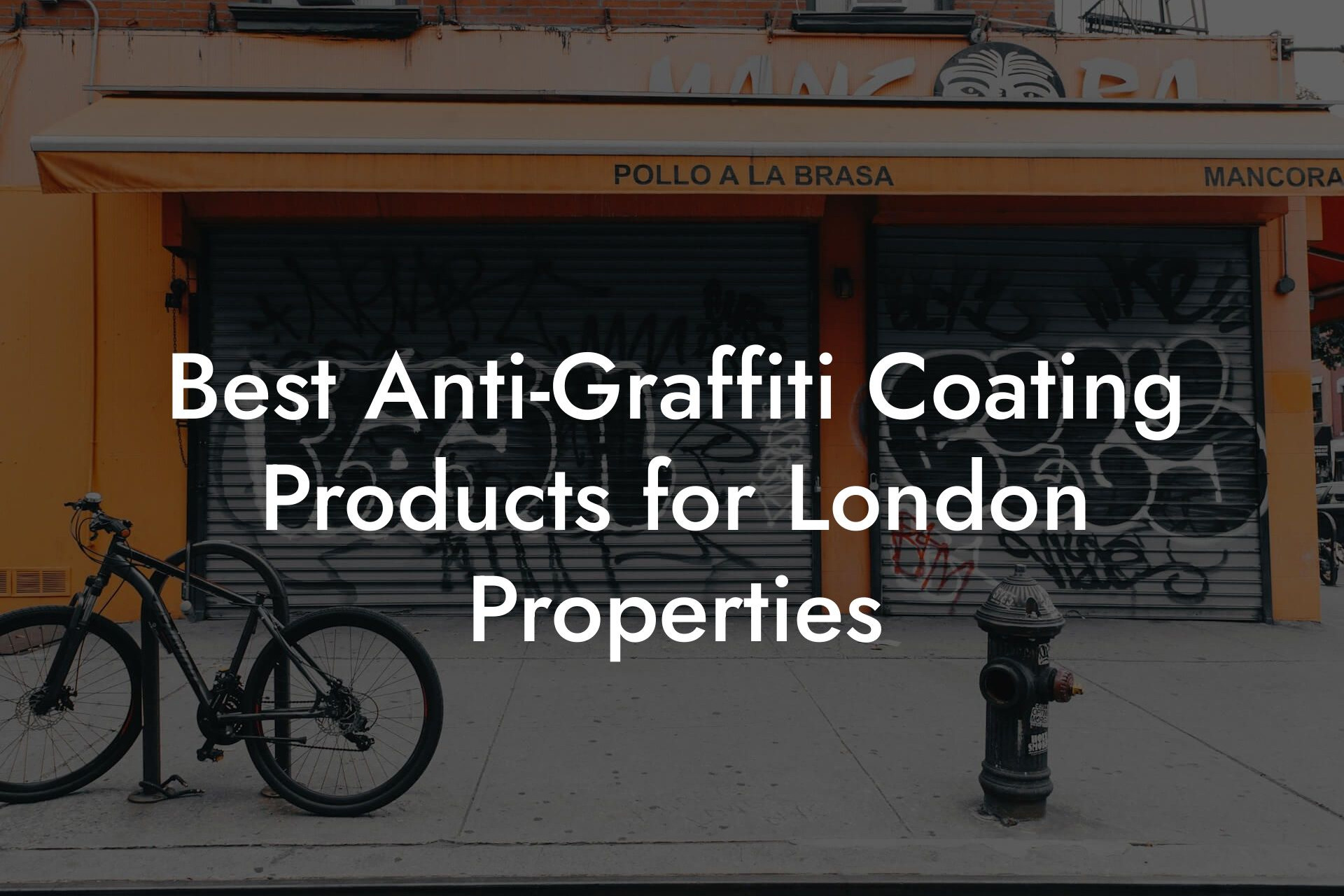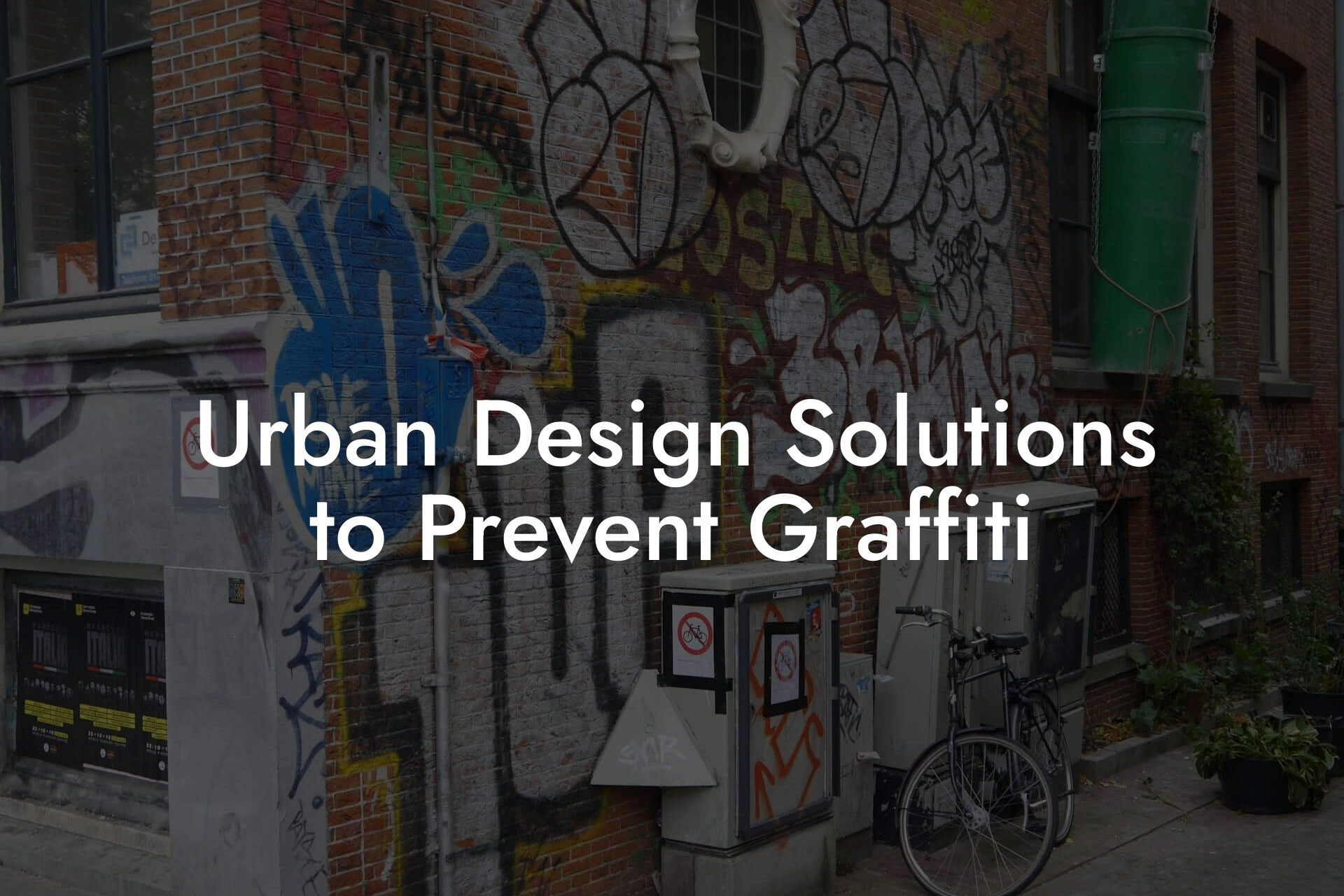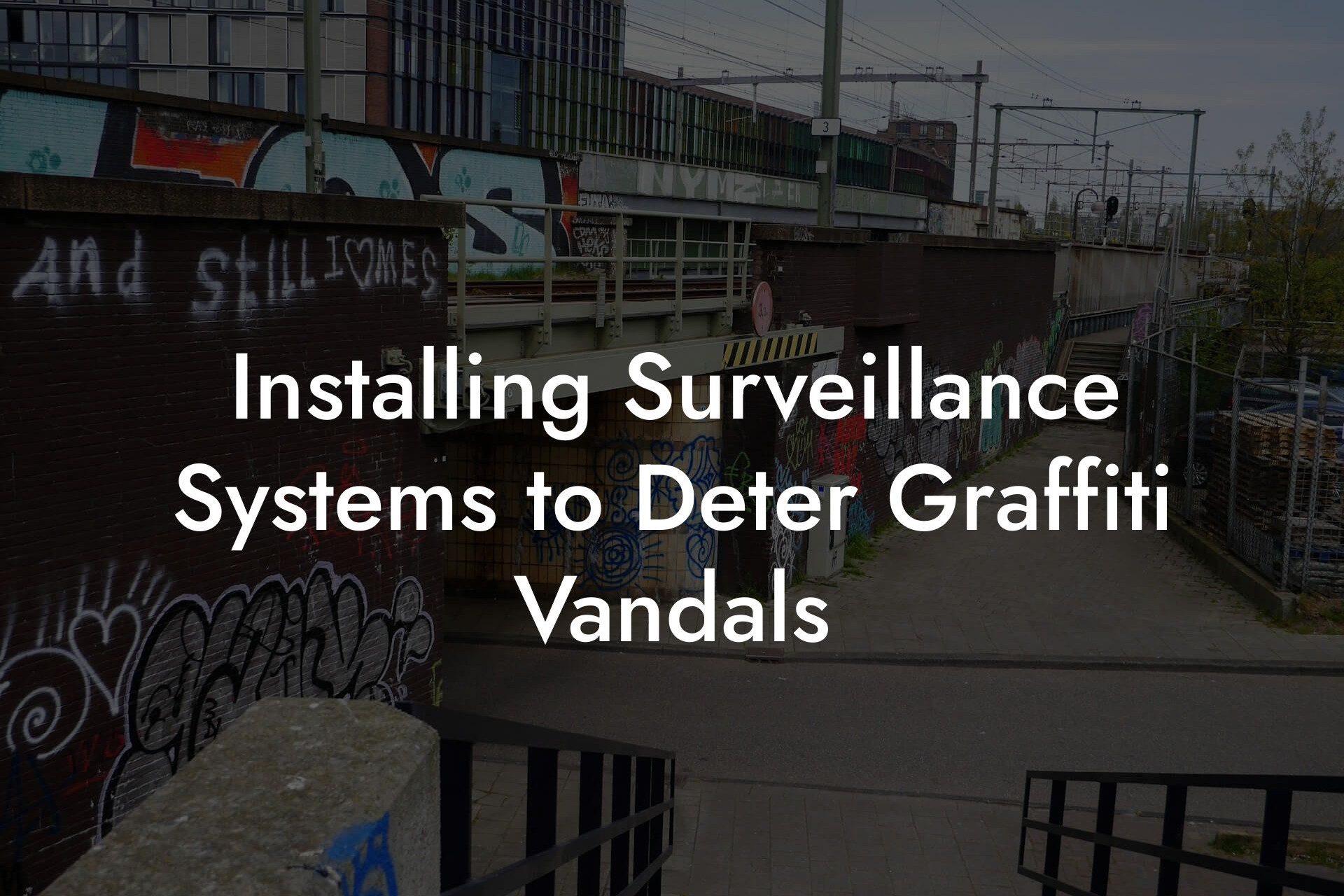As a business owner in London, you understand the importance of maintaining a clean and visually appealing exterior for your property. Unfortunately, graffiti vandalism is a common issue that can mar the appearance of your building and damage its reputation. This is where anti-graffiti coatings come in – a innovative solution designed to prevent and mitigate the effects of graffiti vandalism. In this article, we will delve into the world of anti-graffiti coatings, exploring what they are, how they work, and their benefits for commercial properties.
Table of Contents
The Purpose of Anti-Graffiti Coatings
The primary purpose of anti-graffiti coatings is to create a barrier between the surface of your property and the graffiti, making it easier to remove without causing damage. These coatings are typically applied to surfaces that are prone to graffiti vandalism, such as walls, bridges, and public art installations. By using an anti-graffiti coating, you can reduce the time and cost associated with graffiti removal, while also preventing damage to the underlying surface.
Types of Anti-Graffiti Coatings
There are several types of anti-graffiti coatings available, each with its own unique characteristics and benefits. Some of the most common types include:
Sacrificial coatings: These coatings are designed to be removed along with the graffiti, leaving the underlying surface intact. Sacrificial coatings are often used on surfaces that are prone to frequent graffiti attacks.
Non-sacrificial coatings: These coatings are designed to be durable and long-lasting, allowing for multiple graffiti removals without damaging the coating. Non-sacrificial coatings are often used on surfaces that are less prone to graffiti attacks.
Permanent coatings: These coatings are designed to provide a permanent solution to graffiti vandalism, bonding strongly to the underlying surface and making it difficult for graffiti to adhere. Permanent coatings are often used on surfaces that are highly visible or sensitive.
How Anti-Graffiti Coatings Work
Anti-graffiti coatings work by creating a smooth, non-porous surface that prevents graffiti from adhering. When graffiti is applied to a coated surface, it can be easily removed using a gentle cleaning solution and a soft cloth. The coating itself remains intact, allowing for multiple graffiti removals without damaging the surface.
In addition to preventing graffiti adhesion, anti-graffiti coatings can also provide additional benefits, such as:
UV protection: Many anti-graffiti coatings contain UV protectants that help to prevent fading and discoloration of the underlying surface.
Weather resistance: Anti-graffiti coatings can help to protect surfaces from the elements, reducing the risk of damage from wind, rain, and extreme temperatures.
Graffiti detection: Some anti-graffiti coatings contain special pigments that make it easier to detect and identify graffiti vandalism.
Benefits of Anti-Graffiti Coatings
Anti-graffiti coatings offer a range of benefits for commercial property owners, including:
Reduced graffiti removal costs: By making it easier to remove graffiti, anti-graffiti coatings can help to reduce the cost associated with graffiti removal.
Reduced surface damage: Anti-graffiti coatings can help to prevent damage to the underlying surface, reducing the need for costly repairs and maintenance.
Improved appearance: Anti-graffiti coatings can help to maintain a clean and visually appealing exterior for your property, improving its overall appearance and reputation.
Increased security: By making it more difficult for graffiti vandals to target your property, anti-graffiti coatings can help to increase security and deter criminal activity.
Applying Anti-Graffiti Coatings
Applying an anti-graffiti coating is a relatively straightforward process that can be completed by a trained professional. The first step is to prepare the surface, removing any existing graffiti or debris. The coating is then applied using a specialized sprayer or roller, depending on the type of coating and surface.
It's important to note that not all surfaces are suitable for anti-graffiti coatings. Some surfaces, such as wood or fabric, may require special preparation or alternative solutions. It's always best to consult with a professional before applying an anti-graffiti coating.
Maintenance and Removal
Anti-graffiti coatings require regular maintenance to ensure their effectiveness. This includes regular cleaning to remove dirt and debris, as well as prompt removal of any graffiti that does occur.
When it comes to removing graffiti from a coated surface, it's important to use a gentle cleaning solution and a soft cloth to avoid damaging the coating. Avoid using harsh chemicals or abrasive materials, as these can damage the coating and underlying surface.
Anti-graffiti coatings are a valuable tool in the fight against graffiti vandalism, providing a cost-effective and efficient solution for commercial property owners. By understanding what anti-graffiti coatings are, how they work, and their benefits, you can make an informed decision about how to protect your property from graffiti attacks. At Graffiti Removal London, we specialize in graffiti removal and vandalism cleanup, and can provide expert advice and guidance on the use of anti-graffiti coatings. Contact us today to learn more.
Frequently Asked Questions
What are anti-graffiti coatings, and how do they work?
Anti-graffiti coatings are specialized layers applied to surfaces to prevent graffiti from bonding to the material. They work by creating a barrier that allows graffiti to be easily removed without damaging the underlying surface. These coatings can be applied to various materials, including concrete, metal, wood, and more.
What types of anti-graffiti coatings are available?
There are two main types of anti-graffiti coatings: sacrificial and non-sacrificial. Sacrificial coatings are designed to be removed along with the graffiti, while non-sacrificial coatings remain intact and allow for easy graffiti removal. Additionally, there are also eco-friendly and UV-resistant coatings available, catering to specific needs and environments.
How effective are anti-graffiti coatings in preventing graffiti?
Anti-graffiti coatings can significantly reduce the likelihood of graffiti adhering to a surface. However, no coating can completely eliminate the risk of graffiti. A determined individual may still find ways to apply graffiti, but the coating will make removal much easier and less damaging to the surface.
Can anti-graffiti coatings be used on any surface?
Most surfaces can be treated with anti-graffiti coatings, including concrete, metal, wood, plastic, and more. However, it's essential to choose the right coating for the specific surface material and environment to ensure optimal performance.
How long do anti-graffiti coatings last?
The lifespan of an anti-graffiti coating depends on various factors, such as the type of coating, environmental conditions, and maintenance. On average, a coating can last anywhere from 5 to 15 years before needing reapplication.
Are anti-graffiti coatings environmentally friendly?
Many modern anti-graffiti coatings are eco-friendly and non-toxic, making them suitable for use in environmentally sensitive areas. Look for coatings with certifications like ISO 14001 or EcoLabel to ensure they meet environmental standards.
Can I apply anti-graffiti coatings myself?
While it's possible to apply anti-graffiti coatings yourself, it's recommended to hire a professional for optimal results. Improper application can lead to reduced effectiveness or even damage to the surface. Graffiti Removal London's experts can provide guidance and application services for your specific needs.
How do I remove graffiti from a surface with an anti-graffiti coating?
Removing graffiti from a surface with an anti-graffiti coating is relatively easy. Simply use a gentle cleaning solution and a soft-bristled brush to remove the graffiti. Avoid using harsh chemicals or abrasive materials that could damage the coating or underlying surface.
Can anti-graffiti coatings be used in conjunction with other graffiti prevention methods?
Absolutely! Anti-graffiti coatings can be used in combination with other methods, such as CCTV cameras, increased lighting, and security patrols, to create a comprehensive graffiti prevention strategy.
What is the cost of anti-graffiti coatings?
The cost of anti-graffiti coatings varies depending on the type of coating, surface size, and application method. On average, the cost can range from £5 to £20 per square meter. Contact Graffiti Removal London for a customized quote for your specific needs.
Are anti-graffiti coatings suitable for historic buildings or sensitive surfaces?
Yes, anti-graffiti coatings can be used on historic buildings or sensitive surfaces. However, it's essential to choose a coating that is specifically designed for these types of surfaces and to consult with a professional, like Graffiti Removal London, to ensure the coating is applied correctly.
Can anti-graffiti coatings be used on vertical surfaces?
Yes, anti-graffiti coatings can be used on vertical surfaces, such as walls and fences. In fact, they are particularly effective on vertical surfaces, where graffiti is more likely to occur.
How do I maintain an anti-graffiti coating?
To maintain an anti-graffiti coating, regularly clean the surface with a gentle cleaning solution and soft-bristled brush. Avoid using harsh chemicals or abrasive materials that could damage the coating. Additionally, reapply the coating as needed, typically every 5 to 15 years.
Can anti-graffiti coatings be used on newly constructed buildings?
Absolutely! Applying an anti-graffiti coating to a newly constructed building can provide long-term protection against graffiti and vandalism. It's an excellent preventative measure to consider during the construction phase.
What is the difference between anti-graffiti coatings and graffiti-resistant paints?
Anti-graffiti coatings are specialized layers applied to surfaces to prevent graffiti, whereas graffiti-resistant paints are paints that contain additives to make graffiti removal easier. While both can be effective, anti-graffiti coatings provide a more comprehensive solution.
Can anti-graffiti coatings be used on bridges or other infrastructure?
Yes, anti-graffiti coatings can be used on bridges, tunnels, and other infrastructure to protect them from graffiti and vandalism. These coatings are particularly useful in high-traffic areas where maintenance can be challenging.
How do anti-graffiti coatings compare to other graffiti prevention methods?
Anti-graffiti coatings offer a unique combination of effectiveness, ease of use, and long-term protection. They can be more effective than other methods, such as increased security or surveillance, and are often more cost-effective than frequent cleaning or replacement of surfaces.
Can anti-graffiti coatings be used in high-traffic areas?
Absolutely! Anti-graffiti coatings are particularly useful in high-traffic areas, such as public transportation hubs, shopping centers, and tourist attractions, where graffiti is more likely to occur.
What is the warranty or guarantee for anti-graffiti coatings?
The warranty or guarantee for anti-graffiti coatings varies depending on the manufacturer and type of coating. Graffiti Removal London offers a comprehensive warranty for our coatings, ensuring your satisfaction and protection.
Can anti-graffiti coatings be used in combination with other vandalism prevention methods?
Yes, anti-graffiti coatings can be used in conjunction with other vandalism prevention methods, such as security cameras, alarm systems, and access control, to create a comprehensive security strategy.
How do I know which anti-graffiti coating is right for my specific needs?
Contact Graffiti Removal London's experts, and we'll guide you through the selection process, considering factors such as surface material, environmental conditions, and desired level of protection.
Can anti-graffiti coatings be used on surfaces with existing graffiti?
Yes, anti-graffiti coatings can be applied to surfaces with existing graffiti. However, it's essential to remove the existing graffiti before applying the coating to ensure optimal performance.
Toby Doherty
Toby Doherty is a seasoned graffiti removal expert with over 20 years of experience in the industry. Throughout his career, Toby has helped countless businesses and property owners in London maintain clean, graffiti-free spaces. His extensive knowledge of graffiti removal techniques, from eco-friendly solutions to advanced technologies like laser cleaning, makes him a trusted authority in the field. Passionate about restoring urban environments, Toby combines his hands-on expertise with a commitment to staying up-to-date on the latest industry trends and innovations. When he’s not out in the field, Toby shares his insights through detailed articles, offering practical advice on everything from graffiti prevention to legal considerations.




